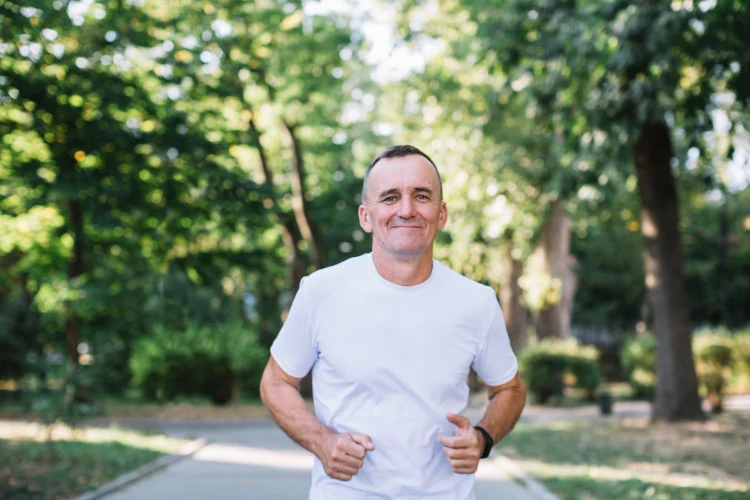The Andalusian Islamic scholar Ibn Ḥazm (d. 1064) pointed out over a thousand years ago out that the temporal nature of this world will ultimately lead everyone into an existential crisis. Everyone at some time or another asks the inevitable questions of “Why am I here?”, “Where did I come from?”, “Where am I going?”, and “Is there a purpose of life?”
Seeking meaning in life is not just an evolutionary coping mechanism as some argue, but rather, a universal and spiritual quest for truth.
Once the answer is found, there is arguably no greater conclusion that affects and permeates every facet of how we live our daily lives.
The Islamic answer regarding the purpose of creation is very clear and unequivocal, though it finds expression in a number of equally valid levels. Allah has stated the purpose of bestowing the gift of existence in the Qur’an as follows:
“I did not create jinn and human beings except to worship Me.” (Qur’an 51:56)
The worship referred to is intended for the benefit of man, not the Creator, for He is beyond any need.1 In Islam, worshipping God means peacefully submitting to His Will. God has created the world with laws that govern not only the natural world, but also the social order of humankind. When people transgress the boundaries of these laws, they are met with what they perceive as stress, pain, suffering, affliction and evil. Hence, God wills that our will conform with His Will for our own benefit, which includes better mechanisms of coping with stress.
Another way to express the purpose of creation is to envision each human being as capable of becoming a vicegerent or representative of God on earth:
“And when your Lord said to the angels, “Indeed, I will place upon earth a vicegerent.” They said, ‘Will You place upon it one who causes corruption therein and sheds blood, while we declare Your praise and sanctify You?’ Allah said, ‘Indeed, I know that which you do not know.’” (Qur’an 2:30)
Thus, the human being who fulfills his purpose is a representative or authority of God on earth, whose responsibility is to not only serve and obey Allah, but also improve the condition of society by implementing Divine Law and avoiding bloodshed and corruption. The angels, who did not know the human potential, feared the worst from the new creation.
Concerning the individual happiness and tranquility that everyone seeks, the Qur’an boldly states that it is the remembrance of Allah that brings tranquility and peace to the hearts, not the wealth, power, and materialism that so many seek:
“Surely in the remembrance of Allah do hearts find tranquility.” (Qur’an 13:28)
Ultimately, these overriding purposes of humanity still need to be implemented at the level of the individual. It is up to everyone to determine the best ways he or she can apply this sense of purpose. For some, this means serving God by serving creation through health care, teaching, engineering or a grocery store. Purpose can also be expressed as serving God through solitary worship, prayer, fasting and contemplation. It can also mean serving God by helping our children, spouses or elderly parents. It can also mean volunteering our time to serve the homeless, feed the hungry, help the disabled, clean the environment or improve social justice. For many, purpose can mean a combination of multiple actions, depending on particular interests and motivations.
One of the beautiful aspects of Divine accountability of human purposes and actions is the fact that Allah judges us based on our efforts, not necessarily the results:
“And that there is nothing for the human being except what he strives for. And that his efforts will be witnessed. Then he will be rewarded for it the fullest reward.” (Qur’an 53:39)
This world judges us in the exact opposite way- you are ultimately judged based on results, no matter how hard you try. A corporate entrepreneur may have the best idea and work ethic in the world, but society will still judge him or her as a failure if the company does not turn a handsome profit. A sports team may have the best players, best sportsmanship, and most effort, but still be deemed a failure if it does not win a championship. In the Divine court, Allah judges us based on whether we simply made a sincere effort to worship Him and to fulfill the rights of others, even if we repeatedly err, which we certainly do. Allah rewards us every time we fail and get back up, no matter how many times it happens. Realizing this fact is liberating and transformational for our mental health.
The point is that the ability to find meaning in life, and especially in adversity, is a vital quality that protects against mental health disease and maintains peace of mind. There is considerable modern research regarding the health benefits associated with meaning/purpose in our lives, the extent of which is so significant that it affects your overall life span more so than even exercise, smoking or drinking alcohol!
A 2019 study from the esteemed Journal of the American Medical Association studied nearly 7000 American adults between the ages of 51 and 61 who filled out psychological questionnaires regarding life purpose.2 What they found shocked them, according to Dr. Celeste Pearce, one of the authors of the study. People without a strong life purpose were more than twice as likely to die, especially of cardiovascular disease, between the study years of 2006 and 2010, compared with those who had one! The study defined purpose as “a self-organizing life aim that stimulates goals.” Mr. Pearce stated, “I approached this with a very skeptical eye. I just find it so convincing that I’m developing a whole research program around it.” The association between life purpose and longer life spans remained true regardless of income level, race, gender or education level. Another meta-analysis from 2016 reported in the journal Psychosomatic Medicine came to the same conclusion.3
People without a strong life purpose were more than twice as likely to die, especially of cardiovascular disease!
Researchers at the University of Florida found that people who had high levels of meaning in their lives had not only lower level of perceived stress, but also had better coping mechanisms for dealing with stressful life events4. A similar study found that those who had strong sense of purpose in life had better coping mechanisms and better physical health after specifically undergoing total knee replacement surgery.5
Yet other studies examined how people with strong sense of purpose in life made healthier lifestyle decisions. For example, one study found such people chose to have greater levels of physical activity and exercise6, while another found they chose to pursue greater levels of preventive procedures, including cholesterol tests, prostate exams and mammograms.7
Viktor Frankl, a holocaust survivor of an Auschwitz concentration camp and later a renowned psychiatrist, has written in his book, “Man’s Search for Meaning”, about the importance of meaning-based psychotherapeutic techniques that helped him and others cope with the horrors they experienced.8 In it he describes the approach known as logotherapy (literally “healing through meaning”), which considers the search for meaning in life to be the primary motivational force in human beings (unlike Freudian psychoanalysis). Logotherapy identifies three primary ways of realizing meaning in life: (1) by making a difference in the world through our actions, our work or our creations (Creative Values), (2) by experiencing something meaningful such as truth, beauty, or love (Experiential Values), and (3) by adopting a courageous and exemplary attitude in situations of unavoidable suffering (Attitudinal Values).
Another often ignored, but essential facet of purpose relates to the intention with which we perform actions and the nature of the purpose. The modern leadership guru, John Maxwell, describes intentionality as the foundation of his “15 laws for personal growth.”9 If the intention or purpose behind any activity is only for worldly gain, such as seeking wealth, power, fame, or pleasing other individuals then we will not derive the physical or mental health benefits we have been speaking of. Thus, even if a noble act of charity was done with the intent to show off or for fame or as a publicity stunt, then from an Islamic standpoint there is no benefit and it may even become a source of punishment or harm.
That is why Prophet Muḥammad (S) reminded us of the foundation of actions: “Verily, deeds are only by intentions. Verily, every person will have only what they intended.” All actions and worship of a believer must be conducted for the sake of obedience and submission to His will alone. Sincerity of purpose is necessary for the acceptance of any righteous deed by Allah.
Sincerity of purpose has key implications in two areas of health and healing. Firstly, if a health care provider does not have sincerity, then his or her treatment will not be as effective and extensive as possible for patients. Secondly, if patients are not sincere in seeking treatment or they lack sincere purpose in their lives, then they will find it very difficult to find lasting results and success in their treatment.
What if you help a friend to improve her exercise regimen, but then your friend does not reciprocate during your time of need? If your intent was sincere for the sake of Allah to help another human being, then you will not be disappointed if your friend does not reciprocate. However, if you intended to get recognition from others or receive money in return, then you did not earn reward from Allah and you are bound to be disappointed and stressed.
The intrinsic nature of material pursuits, whether they be wealth, property, power and the like, is that the seeker can never be completely satiated and will inevitably face moments of anxiety, stress and sorrow. That is why Prophet Muḥammad (S) urged us to purify our intent and purpose when performing any action in order to have the contentment of knowing that it was done for the sake of Allah and without any expectation from others, regardless of the outcomes. It is difficult to ever be disappointed if there is no expectation from others and you did something only for the sake of obeying Allah.
References:
1. See Qur’an, 35:15- “O Men, it is you who stand in need of Allah. As for Allah, He is above all need, worthy of praise.”
2. A. Alimujiang et al. (2019). Association Between Life Purpose and Mortality Among US Adults Older Than 50 Years, JAMA Network Open, 2(5):e194270.
3. R. Cohen et al. Purpose in Life and its Relationship to All-cause mortality and Cardiovascular Events- A Meta-Analysis. Psychosomatic Medicine Feb-Mar 2016, 78 (2): 122-133.
4. Jina Park and Roy Baumeister. (2017). Meaning in Life and Adjustment to Daily Stressors, Journal of Positive Psychology, 12(4): 333-341.
5. Bruce Smith and Alex Zautra. (2000). Purpose in Life and Coping With Knee Replacement Surgery. Occupation, Participation and Health Journal, Jan. 1, 20 (suppl):96S-99S.
6. Stephanie Hooker and Kevin Masters, (2014). Purpose in Life is Associated With Physical Activity Measured by Accelerometer, Journal of Health Psychology, 21(6):962-971.
7. Eric Kim et al. (2014). Purpose in Life and Use of Preventive Health Care Services, Nov., 111 (46): 16331-16336.
8. Frankl, V. E. (2006). Man’s search for Meaning. Boston, MA: Beacon Press.
9. https://johnmaxwellleadershippodcast.com/episodes/john-maxwell-the-law-of-intentionality
Other Articles
Hijamah Mechanism- Taibah Theory
https://www.researchgate.net/publication/327810434_Taibah_mechanism_Taibah_Theory
How Islam Changed Medicine By Azeem Majeed
https://pmc.ncbi.nlm.nih.gov/articles/PMC1322233/
The Air of History Part III: The Golden Age in Arab Islamic Medicine- An Introduction By Rachel Hajar https://pmc.ncbi.nlm.nih.gov/articles/PMC3621228/

